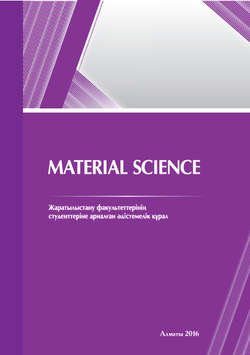Читать книгу Material science. Жаратылыстану факультеттерінің студенттеріне арналған әдістемелік құрал - Шолпан Гумарова - Страница 8
На сайте Литреса книга снята с продажи.
Noble metals II
ОглавлениеPlatinum. A metal that does not react with oxygen and shows rather high resistance to chemical agents. It displays superb ductility and malleability, and readily draws into very thin wire and foil. The tensile strength of annealed platinum is about 150 MPa, with elongation of 30 to 35 %. Platinum is used for thermocouples designed to measure temperature up to 1,60 °C, for the production of pastes intended for fusion of electrodes on to the body of ceramic capacitors, etc.
Platinum filaments drawn to about 1 Mm across are used for suspension of movable systems in elecrometers and other sensitive devices. They are obtained through multiple drawing of the composite platinum-silver wire with the subsequent dissolution of the silver coat in nitric acid (platinum is resistant to this acid).
Platinum is too soft for use alone as a contact material, and is generally alloyed with harder metals. Platinum-iridium alloys are wear- and corrosion-resistant, hard and tough, allow for a high repetition rate of switching, but are costly, and so their uses are limited to critical applications.
Palladium. It stands close to platinum in many of its properties, and often serves as a substitute for the latter. It is valued in the electron- tube industry for hydrogen absorption. Palladium and its alloys with silver and copper go into the production of contacts. Palladium paste, like platinum paste, is used for the deposition of electrodes on to ceramic capacitors.
Annealed palladium has a tensile strength of 200MPa with an elongation at rupture up to 40 %.
